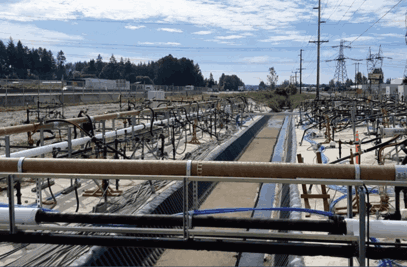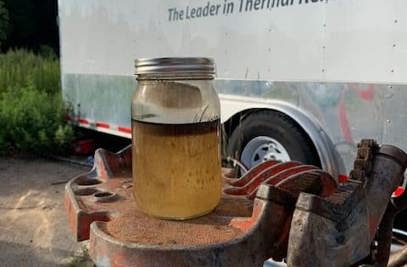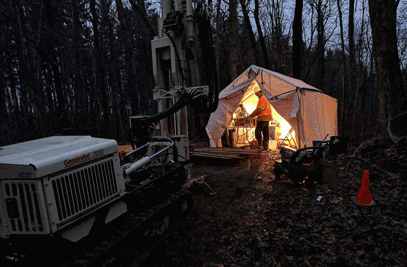Complex Thermal Remediation
Welcome to our thermal soil remediation blog series! We're excited to share with you how we use heat to eliminate hazardous pollutants and create sustainable land. In this series, you'll learn about Thermal Conduction Heating, Steam Enhanced Extraction, and Electrical Resistance Heating. We'll provide you with expert insights, case studies, and resources to help you succeed in the field. Keep reading!
How to Implement ISTR in Complex Geologic Settings
Having a good understanding of geology, groundwater flow, and contaminant distribution is essential to designing an effective thermal remedy. Having an accurate conceptual site model (CSM) is especial...
Can You Combine Remediation Technologies? – 2023 Update
Addressing Complex Remediation Sites With the onset of improved treatment technologies and a better understanding of remediation processes, sites once considered too challenging or complex...
Thermal Treatment of PFAS Impacted Soil
Federal guidance about per- and poly-fluoroalkyl substances (PFAS) remediation may be on the horizon, but information about treatment options and their efficacy is often still murky. Research and deve...
8 Reasons to Use Thermal Brownfield Remediation for Redevelopment Projects
Brownfield redevelopment projects are typically on tight schedules, and one delay can have a domino effect that ultimately costs the site owner and developer millions of dollars. That’s why it’s criti...
Answers to Your Questions about In Situ Thermal Remediation and Subsidence Risks
More and more frequently, In Situ Thermal Remediation (ISTR) is used to treat contamination located below buildings, roadways, and other critical infrastructure. Subsidence (vertical downward movement...
Hydraulic and Pneumatic Control 101: The Basics You Need to Understand for a Thermal Remediation Project
No matter the thermal heating technology, one of the biggest balancing acts when it comes to in situ thermal remediation (ISTR) is injecting enough energy into the subsurface to sufficiently heat the ...
Why Estimating and Tracking Contaminant Mass Removal is Important to Assessing Performance and Success of Thermal Remediation Projects
One of the most important and tangible metrics to a thermal remediation project’s progress is contaminant mass removal. Because thermal remediation is often considered one of the more costly...
How Do You Implement Below Building Remediation?
Cleanup of soil and groundwater contamination present beneath a building is one of the more complex challenges our clients face, made even more so if the building has limited access inside and/or must...
How Can High Resolution Site Characterization Reduce Cost and Improve Outcomes on Thermal Remediation Projects?
Every cubic yard of soil treated is dollars added to a project. Why treat more than you have to? Modern high resolution site characterization (HRSC) tools provide consultants and remediation practitio...










